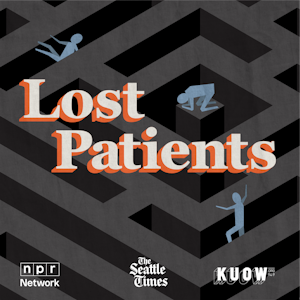Liz Jones
Editor
About
Liz Jones is an editor for daily news, features and special projects. She started at KUOW in 2005 and worked primarily as a reporter until 2018. Her coverage largely focused on immigration and underrepresented communities.
Her work has also been heard on national shows including NPR’s Morning Edition, All Things Considered, Here & Now, PRI's The World, Latino USA, Snap Judgment, The Takeaway and BBC News Service.
She is a NW native who's also lived in Spain, Peru, NYC and Ritzville, WA.
Location: Seattle
Languages: English, Spanish
Pronouns: she/her
Podcasts
Stories
-
State Yanks License Of Hempfest Pot Doc
How long does it take to get a prescription for medical marijuana? More than a few minutes, according to the Washington State Department of Health. State regulators have suspended the license of a Seattle-area naturopath who did a brisk business at Hempfest event 2011.
-
Boeing Engineering Layoffs To Start Friday
Boeing officials say pink slips will go out Friday to about a hundred engineers in the Puget Sound area. It’s the first round of more expected cuts for the engineering staff, which Boeing said it plans to reduce by 1,500 to 1,700 positions through layoffs and job openings that will not be filled.
-

Feds Agree To Changes for Asylum Seekers
Attorneys with the Northwest Immigrant Rights Project in Seattle say they’ve reached agreement with federal officials on a nationwide class action lawsuit
-

Rallies For Immigration Reform From Seattle To DC
Supporters of immigration reform call the outside of the Federal Building in downtown Seattle their patio. That’s because they’ve gathered here so many
-

Wash. Dream Act Unlikely To Clear Senate
Supporters of a bill dubbed the Washington Dream Act plan to make one more uphill push in Olympia Tuesday. The measure would extend state financial aid to
-

Immigration Reform In The Restaurant Kitchen
Next time you go out for a nice dinner, give a listen near the restaurant’s kitchen. Amid the bustle, there’s a decent chance you’ll hear chefs, cooks...
-

What Have We Learned From Past Immigration Reform?
Seattle schoolteacher Sandra Aguila became a US citizen through the last major immigration reform bill, which President Ronald Reagan signed in 1986.
-

No Citizenship? No Problem For IRS
On a recent night at El Centro de la Raza, in Seattle’s Beacon Hill neighborhood, undocumented workers show up with folders of paperwork. They’ve come to
-
Push For District-Based Seattle City Council Elections
A campaign is mounting to switch up how Seattle City Council members are elected. Currently, members can live in any part of the city and their job is to
-

Gay Couples See New Hope For Immigration Benefits
If you want to marry someone from another country, and you’re a US citizen, chances are your spouse could also gain citizenship through marriage. That is,
